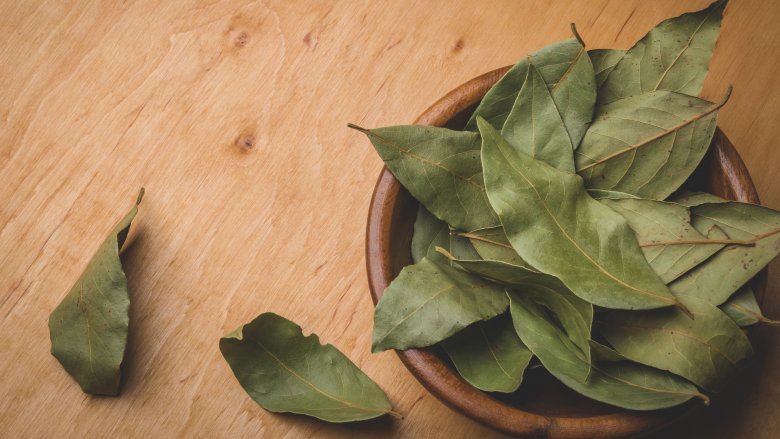Can You Eat Bay Leaves?
Bay leaves are well-known for a couple of reasons — the flavor they impart to your favorite dishes and the fact that you should discard the bay leaves before serving your friends or family. If you forget to extract said leaf from your pot of stew, though, are you in danger if you accidentally eat it? Are bay leaves safe to eat, or are they toxic?
Parents everywhere have warned their kids to not eat the bay leaf floating in their soup because they're poisonous, but that's just a myth (via MySpicer). These flavorful leaves physically resemble a couple of other plants whose leaves are very similar to bay leaves — both mountain laurel and cherry laurel leaves look similar and they are toxic for both humans and animals. It's thought that this similar appearance prompted the myth, but it has no basis in fact.
While bay leaves aren't poisonous, though, you still don't want to eat them. Serious Eats writes that even after simmering in a pot for hours (even in a slow cooker that's been on all day), the bay leaf doesn't become supple and tender over time like everything else you've probably already added to the pot. Instead, it remains hard, rigid, and pointy. If you accidentally eat it, it can be sharp enough to scratch your mouth or your esophagus, and if you're unlucky enough, you can actually choke on them. You also don't want to break them up before adding to your stew, either, because it will be even more difficult to dig out a bunch of tiny, sharp shards before enjoying your meal.
You can buy ground bay leaves (which even further dispels that myth that they're poisonous), but those in the know say that it needs to be a very fine powder, and a little bit goes a long way as it will release far more flavor in this fashion than in the whole leaf state. This means it can be easy to overpower your soup instead of enhance it.
